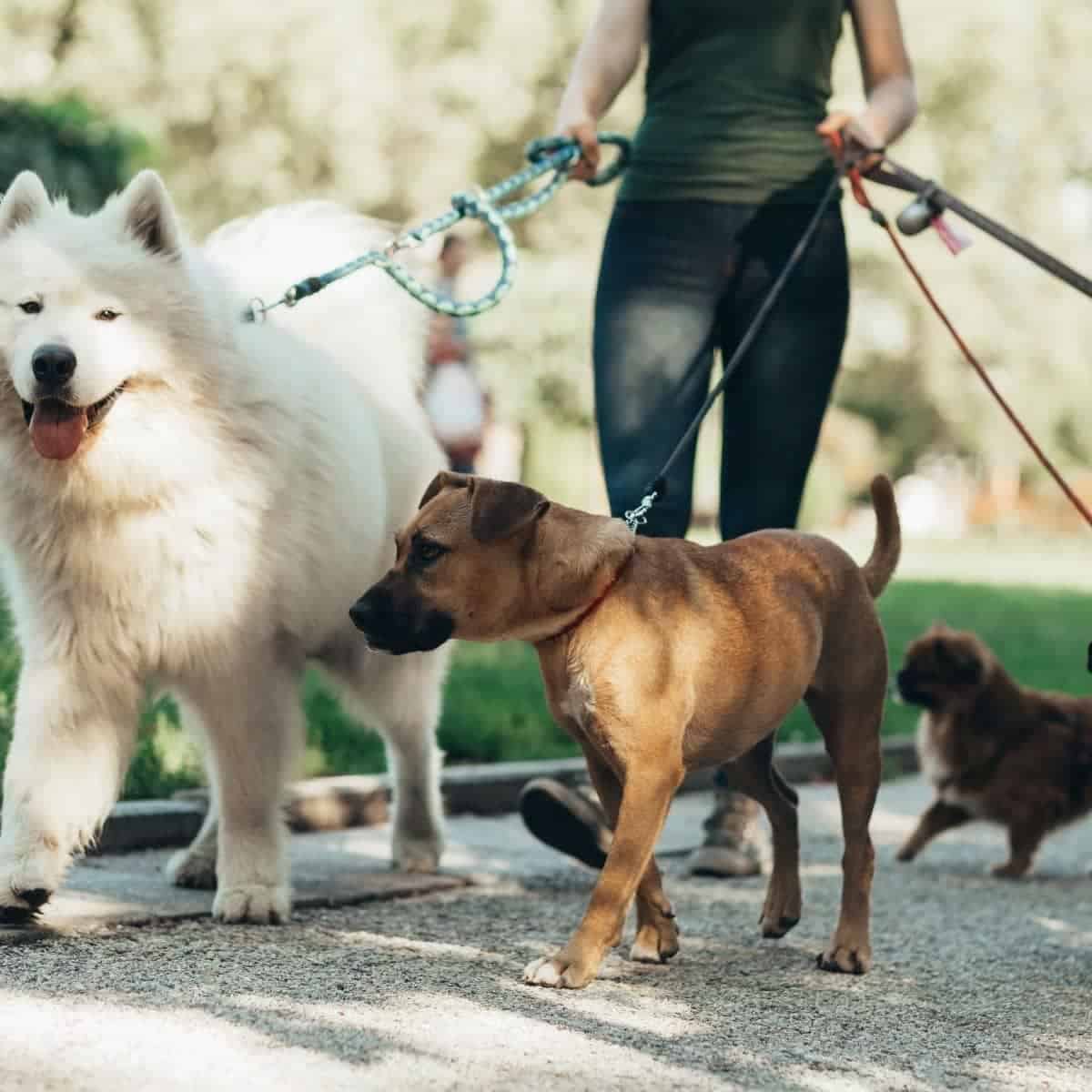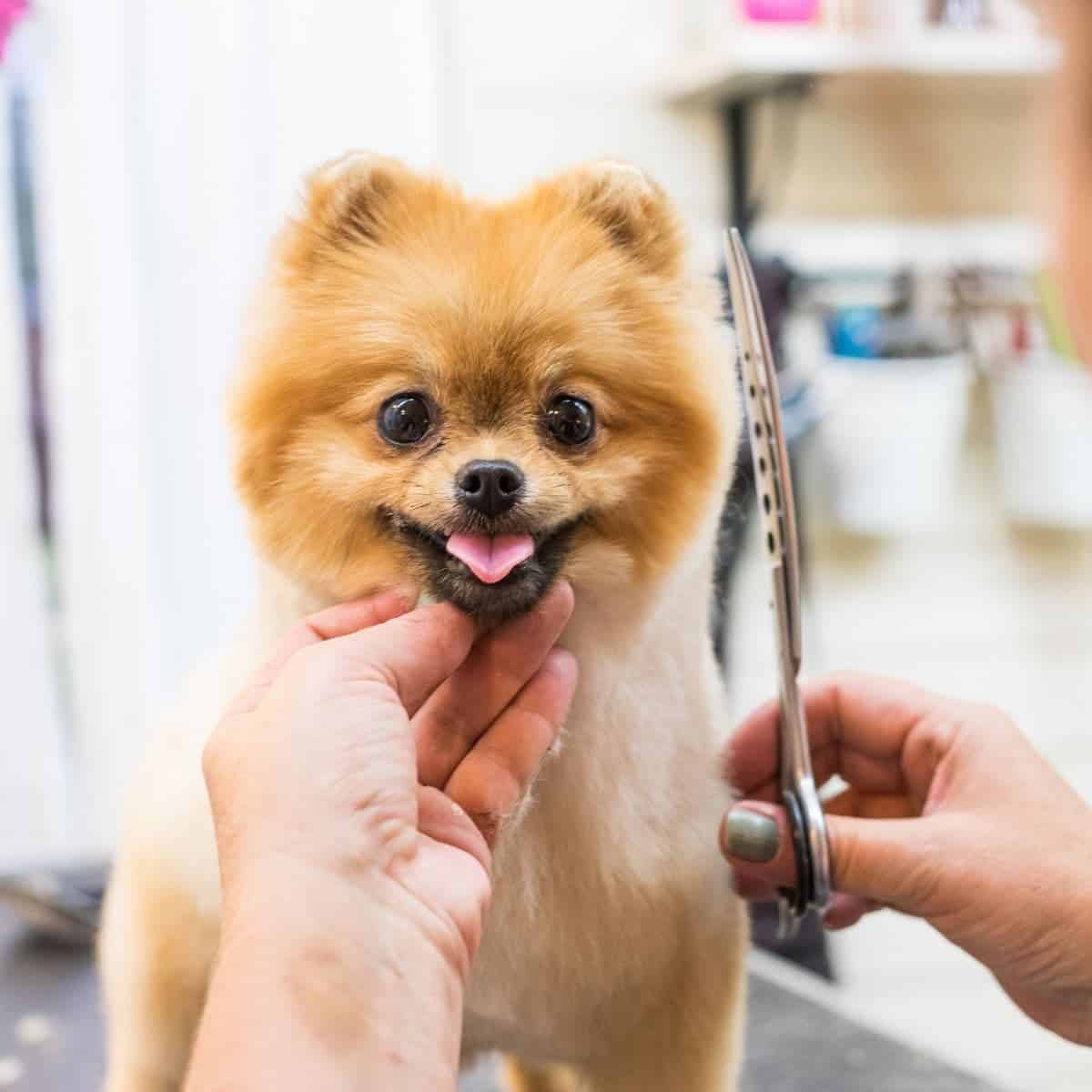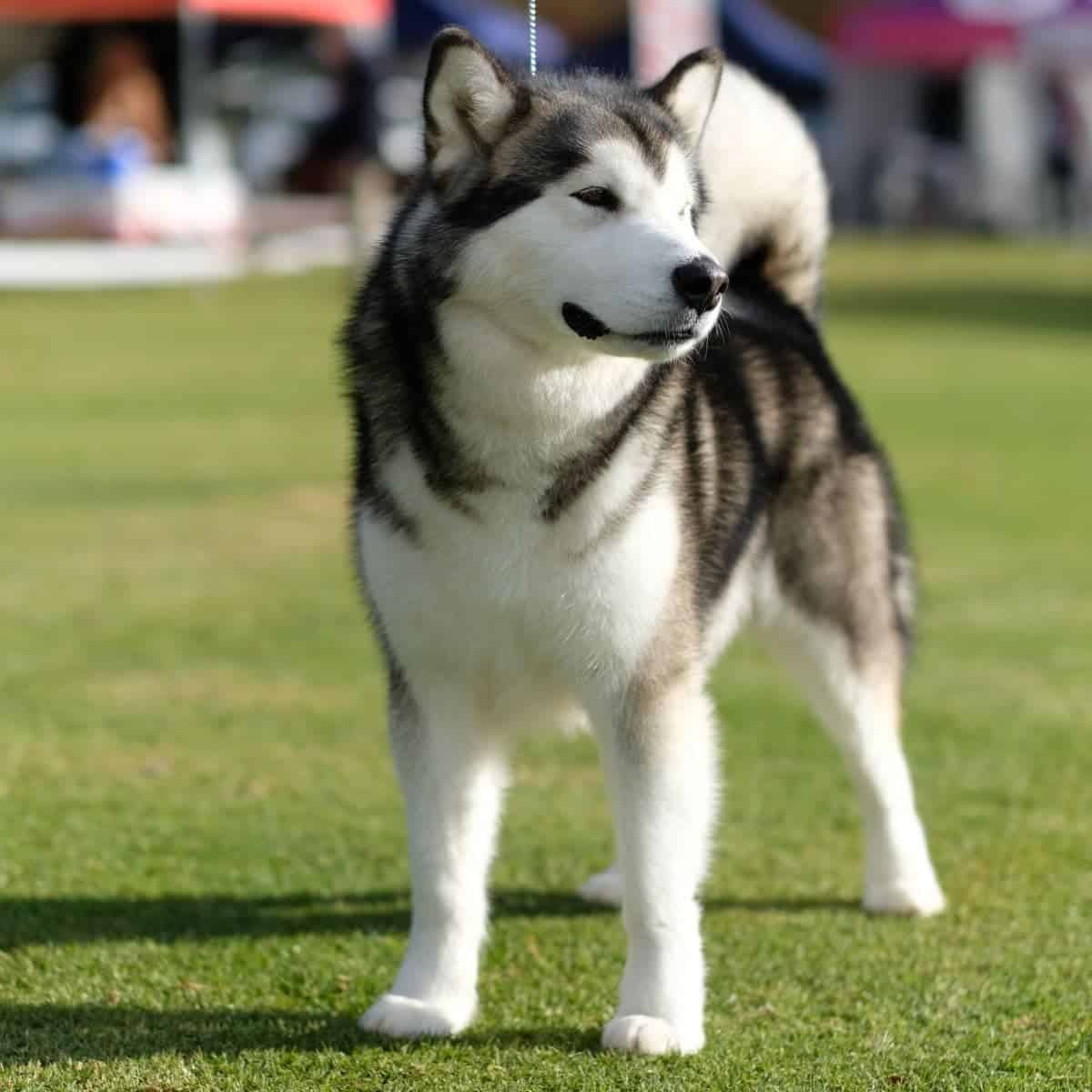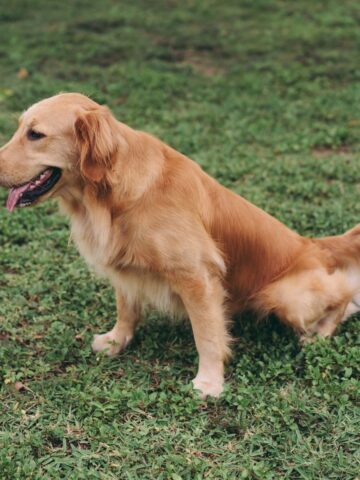Make Money Working with Dogs. Are you interested in a Career with Animals? Did you know there are Ways to Make Money Working with Dogs?
Fulfilling Ways to Make Money Working with Dogs
Today's dogs are more popular than ever.
Dog ownership has increased over 100% in the past 30 years, and there are over 77 million dogs in the United States alone.
The pet care industry has grown in tandem with the boom in pet popularity.
Today there's no shortage of people looking to make money working with dogs.
Dogs are a tremendous source of income for people in the business of provide dog services like sitting, walking, training, walking, grooming and so on.
In fact, almost any kind of dog-related business you can think of has a profit opportunity for you.
So, if you're planning on working with dogs, here are 17 Ways to get started making money working with dogs.
The only requirement to working with dogs is that you are you an animal lover.
Working with dogs for a living can be a dream come true.
Most jobs with dogs can be fun and rewarding.
In addition, there are many side hustle jobs with pets, including working as AKC staff at dog shows, writing or illustrators for dogs.
Dog Sitter or Dog Walker

You've always loved dogs and always wanted to start a dog walking business to make money.
You've got your supplies ready to go: an assortment of leashing in fun colors, a backpack for carrying water, treats, poop bags, and a first aid kit, along with a good book to read while you hang out with your customer's pets.
Congratulations! You're ready to go!
Dog sitting or Dog walking are one of the easiest ways to work with pets and earn a few dollars.
Most of these careers that make money working with dogs start by offering help to a neighbor, friend or relative to take of their pet while on vacation.
- You can make money by walking a dog twice a day.
- Changing litter boxes.
- Feeding, changing water and playing with a dog or cat.
Dog Grooming Careers

If showing a dog, a good groomer can help prepare your pet for the show ring.
Groomers help owners keep their dogs and cats in good shape.
Many breeds have special grooming requirements, as a groomer you must learn them all.
- As a groomer, you’ll learn to handle shy, aggressive, old, squirmy and frightened dogs firmly but gently.
- A groomer’s primary responsibility is bathing, brushing, combing, trimming of dogs and cats for their specific breeds.
- Besides bathing, some pets may require a flea bath.
- Most pets will need shaving, nail clipping, ear cleaning, and teeth brushing.
- Several groomers work out of their homes, pet supply store or veterinary office.
- Grooming is hard work on your back, shoulders, hands, and wrists, but groomers make a living.
- In addition, most owners give groomers tips.
Making Money as a Dog Trainer
Some trainers run group classes to help owners learn how to teach dogs to have good manners.
Others work with owners who want to compete in obedience or agility competitions.
- Some trainers specialize in dogs with behavior problems; others teach dogs to hunt, herd, or for search and rescue or service work.
- Dog trainers may have their own business; work at a boarding kennel, pet supply store, or veterinary clinic.
- You can also get a job with a service dog organization, a police department, or an animal shelter.
Good dog trainers attend seminars in various training methods, read lots of training books, and observe other trainers at work after they have trained dogs of their own.
You can get started by joining a 4-H club or taking your pet through classes at an obedience club.
Animal Behaviorist
Some trainers and veterinarians are also behaviorists who study dog reactions to their environment and help owners solve problems.
- Veterinary behaviorists are board-certified specialists.
- Trainers who advertise as behaviorists may specialize in problem-solving, but they rarely have a college degree in animal behavior.
Animal Rights Attorney
Unfortunately, there are terrible people out there who abuse animals.
As an Animal Rights Attorney, you can be their voice to fight against abuse and crimes against animals, putting bad people behind bars.
Pet Communicator
You can make money working with dogs by becoming a pet communicator.
It's only been the last few years I've heard about physics who can communicate with animals.
There are people who make money working with dogs as a pet communicator.
- Wouldn't you love to know what your dog or cat actually thinks?
- Whatever your opinion, there is a market for this type of position.
Boarding Kennels
Boarding kennels offer another excellent opportunity for responsible young people to get involved with dogs.
- You'll do everything from clean kennels to feeding and walking dogs and can learn how to groom if the kennel also has a grooming shop.
- Boarding kennels require good business sense, an ability to work with people so clients will come back.
- Attention to kennel maintenance, and above all, concern for the dogs.
- Boarding kennels are very busy during the summer and through school vacations.
- Dog food, equipment companies, and pet supply stores need regular corporation employees from clerks and secretaries, managers and officers and product designers and engineers.
- Some companies specialize in particular types of equipment such as dog houses, dog crates, and carriers, or leashes and collars; others make a variety of items.
- Companies that make food, flea control products, shampoos, and supplements need researchers and technicians to work in laboratories and corporate and retail employees.
- A pet supply store can be a large or small business.
- The superstores belonging to regional or national chains need many types of employees from cashiers to stock boys and sometimes use groomers and trainers as well.
- The small stores are likely to be family businesses, with only a few employees who learn many jobs from waiting on customers to order merchandise.
Artists and Craftsmen
Dog owners often collect paintings, jewelry, sculptures, note paper, clothing, mugs, and other items for their homes and for gifts, providing opportunities for talented artists and craftsmen.
- Many artists travel the dog show circuit with their wares, everything from oil paintings and pastel sketches to hand-painted jackets, hand-cast jewelry, and fashions sewn in doggy fabric, and enjoy the dog show at the same time.
- Publishing companies need illustrators to provide drawings for books.
- Most illustrators go to art school to hone their skills and add to their resumes, but artists and craftsmen who sell directly to the public or to galleries or specialty stores need attractive work, not an art degree.
Veterinary Medicine
Veterinarians are the equivalent of human medical doctors.
They need at least four years at a veterinary college after four years of undergraduate work and need additional years if they plan to specialize.
- Veterinarians can be general practitioners, taking care of puppies and dogs, doing some surgeries, advising clients on pet care, and diagnosing and treating diseases.
- They can be specialists in internal medicine, reproduction, behavior, bones, eye diseases, etc. or work in research on anything from cancer treatment and prevention in humans and animals to canine nutrition or drug development.
- Writing textbooks and articles for pet owners and professionals, help enforce animal health laws, or work in animal shelters, the possibilities are almost endless.
- Veterinary technicians attend two-year college programs to learn how to help the doctor in his work.
- Technicians give shots, draw blood, get animals ready for surgery, monitor them during surgery, take x-rays, and do whatever else needs to be done to keep animals comfortable in the hospital.
- They also work in research labs, animal shelters, kennels, and companies that manufacture animal foods and supplements.
Animal Control Officer and Shelter Worker
Animal control officers in many areas are police officers who enforce laws about animal laws.
They help educate the public about dog care, write tickets for unlicensed dogs, and impound stray dogs found on the streets.
Sometimes they go to court to testify against a dog owner who has violated the law.
- Many animal control officers are also humane agents who investigate complaints of cruelty to animals.
- Although animal control officers and shelter managers are paid, many shelter workers are volunteers. A good way for young people to find out if they can work with dogs every day is to volunteer at a shelter to groom, exercise, socialize, and clean the kennel.
Security Dog (Police dog) Handlers
Many police departments use dogs to track and attack criminals, sniff for drugs or bombs, and search for victims of crimes or disasters.
- Police dog handlers train their own dogs, go to training camps and seminars, and work in all kinds of weather and circumstances.
- The dogs live in their homes as family pets when they are not on duty.
- Many police departments depend on volunteer search and rescue teams to provide dogs for most jobs instead of keeping dogs themselves.
- These teams provide opportunities for people to get involved in search and rescue without becoming a police officer.
- All branches of the military use dogs for a variety of security purposes. For information, visit any recruiting office.
Writers
Students who like to write about dogs may find a market for stories and articles: dog magazines, pet magazines, newspapers, or publications for children or families.
- Those with a special interest in a dog sport may sell an article to a magazine for hunters, sled-dog enthusiasts, or working dog owners.
- There is a market for dog books, breed books, training books, medical books, breeding books, breed selection books, and more. Book writers usually need an agent and work with an editor at the publishing company.
- Freelance writers come up with their own ideas and peddle them to magazines, newspapers, and book publishers. It is difficult to make a living as a freelance writer until you are well-established, but feature writers and editors on well-known publications make a comfortable living.
If you like to take pictures of dogs, you can become a dog show photographer, work for a magazine, take freelance photos and submit them to various publishers, or set up a studio and take dog portraits.
- Winners at the dog show like pictures of their dog with the judge.
- A dog show photographer contracts with the show committee to take the pictures and deals directly with the dog owner when the picture is taken.
- A dog show photographer might take over 100 photos in a day and often needs an assistant or two for a large show.over
- Show photographers and studio photographers are small businessmen and must market their pictures in order to make a living.
- Magazine, book, and newspaper photographers work on assignment and are paid by the publisher for the work they complete.
Dog Handler
Many purebred dogs are shown by their owners, but many owners do not have the time to travel every weekend in search of championship points and other awards, so they hire professional handlers to do the job.
- Handlers may travel with a dozen dogs of the same breed or of two or more and enter shows most weekends.
- Clients pay handlers to take the dog in the ring. If the dog wins best of a breed, a group placement, or best in the show, the handler gets a bonus.
- The client also helps pay travel expenses and a board fee for the dog while it is living in the handler’s kennel.
- Out of this money, the handler must pay assistants, kennel expenses, meals, motel fees, motorhome upkeep, and all other business expenses before drawing a salary.
- Handling dogs can be hard work. Handlers work with their dogs every day to keep them in top physical and mental condition, to keep their coats healthy, and to teach them to stand and gait for the judge.
- Handlers also must be able to work with people so that clients will bring dogs to them. They negotiate contracts, advise owners on good shows to enter, and study judges to learn which one's like particular types of dogs.
- A good handler enjoys dog shows and the dog's likes travel and don’t mind long hours.
If you’re interested in learning more about handling dogs, many handlers accept young people as assistants, and some breeders will arrange for a responsible teenager to borrow a dog for AKC junior handling competition.
How to Make Money Working with Dogs as a Show Judge

A judge needs an in-depth knowledge of dogs and of breeds in particular.
That knowledge is gained by breeding dogs and learning to recognize the qualities that make a champion in one or two breeds.
Many breeders who want to be judges also handle dogs of several breeds, so they learn about others besides their own.
- Judges also need to learn the ropes at a dog show, so they volunteer to serve on show committees and steward for working judges. Stewards help the judge by handing armbands to competitors, calling dogs into the ring in proper order, and making sure the ribbons and prizes are ready when the judge needs them.
- As you gain dog knowledge, you can practice judging at matches. Matches are for puppies and inexperienced dogs and do not award points towards championships.
- Once you are knowledgeable about your breed, you can apply to the AKC for approval as a judge of your breed only. To add more breeds, study, do more match assignments, and attend seminars with people knowledgeable about each breed.
Judging is not a job, it is an avocation done for the love of dogs and the sport.
Judges earn a small fee along with travel expenses, but they have regular weekday jobs or have a retirement income.
How to Make Money Working with Dogs as a Show Superintendent
A show superintendent handles everything from taking entries and printing the show catalog to providing the equipment and workers to set up and tear down the event.
- Working with club show committee's they make sure everything is running smoothly.
- Some superintendents work for large companies that set up dozens of shows each year; some are family operations or individuals who do a handful of shows.
- The best way to find out about the business is to talk to the superintendent at an all-breed show. He can be found in a special tent or area set aside for his crew.
AKC Staff Make Money Working with Dogs
The American Kennel Club uses hundreds of dog lovers in dozens of jobs ranging from the business offices to the field representatives.
There are departments to handle club affairs, performance events, publicity, education, and legislation.
For more information, contact AKC on the web (www.akc.org) or write AKC education department, 5580 Centerview Drive, Raleigh, NC 27606.
Resources for Making Money Working with Dogs
The best resources are local. If you want to work with dogs, talk to a veterinarian, groomer, boarding kennel owner, or other business person involved with dog care to find out about education, opportunities, and details about the job.
Or you can write to these organizations or search for websites for information about careers with dogs.
- American Boarding Kennel Association, 4575 Galley Road 400A, Colorado Springs, Colorado 80915
- American Veterinary Medical Association, 1931 Meacham Road, Suite 100, Schaumburg, IL 60173
- National Animal Control Association, PO Box 480851, Kansas City, MO 64148
- Animal Behavior Society, SUNY Department of Psychology, Potsdam, NY 13676
- National Association of Obedience Instructors, 8439 Elphick Road, Sebastopol, CA 95472
- The National Association of Pet Sitters, 1200 G Street NW, Suite 760, Washington, DC 20005
- For Groomers, National Dog Groomers Association of America, PO Box 101, Clark, PA 16113
- Professional Handlers Association, 15810 Mt. Everest Lane, Silver Spring, MD 20906
- Professional Photographers of America, 1090 Executive Way, Des Plaines, IL 60018
- Dog Writers Association of America, 173 Union Road, Coatesville, PA 19320








Ivana Kinsley says
That's a great post for career opportunity hunting people. Nowadays everyone busy with their own work, and they can't spend time with their lovely dogs like travel, walking or playing with a cute pet. On the other hand, it's a very big opportunity for unemployment people or part-time students. They choose any kind of pet work like boarding, grooming, pet sitter or something they earn a lot. Very good topic you discuss with us. I love it. if anyone asked me what types of work I choose. I tell him I want to be a pet sitter.
Ruby Doodle Dog says
I think pet sitting is a perfect choice. Honestly, the best times spent are with our furry friends. Nowadays there is a huge need for pet sitters, dog walkers, etc. Especially if you live a little more rural where doggie daycares are scarce.